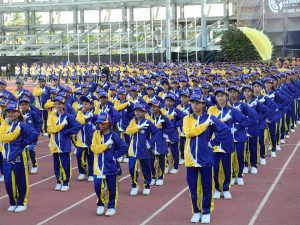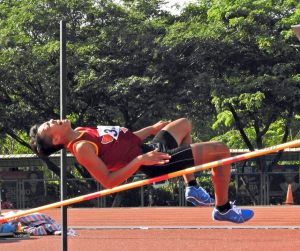
Manila – A day before the 30th Southeast Asian Games’ opening ceremonies, Philippine Sports Commission Chairman William “Butch” Ramirez extolled the Filipino athletes to win the overall championship for flag and country.
“Go for the golds as if your life depended on them and an entire nation will be grateful,” said Ramirez, chef de mission of Team Philippines in these games and Chairman of the PSC. “Let’s bring good news to everyone. We need it, all Filipinos need it.” Ramirez’s call isn’t an empty plea or a mere sound bite.
For spending P1 billion on the national athletes’ international training and exposure, equipment, foreign coaches, education and nutrition, the PSC expects a return of its huge investment in the form of a successful run not only in these games, but in the coming Tokyo Olympics and Hangzhou Asian Games, as well.
“Government has been very supportive of our national athletes. And it’s high time that such support gets the results expected from the athletes’ all-out campaign in the SEA Games. We expect nothing less than a 100 percent effort from our national athletes in front of their fellow Filipinos, who I am very sure, will come out in droves to support them.”
As expected, the Philippines is fielding the largest delegation in the SEA Games – numbering 1,115 athletes and 753 coaches and officials for a total of 1,868.
The athletes will be shooting for most of the 530 golds at stake in 56 sports, scattered in 44 venues spread across Metro Manila and Southern Luzon, Subic and New Clark City in Capas, Tarlac.
Combat sports account for most of the gold-medal projection, with arnis tipped to get at least 15 golds from the 20 events on tap. There are at least five golds each from judo, kickboxing, jiu-jitsu, sambo, wrestling, according to research by sports leaders.
Outside of combat sports, dancesport is projected to get 10 gold medals, while athletics and gymnastics are confident of getting nine.
This is the fourth time the Philippines is hosting the event. The first one was in 1981, when it was still called the Southeast Asian Peninsular Games.
Filipinos placed second during their second hosting in 1991, before finally winning the overall championship in what is now known as “The Miracle of 2005.”
That year, the Philippines asserted its supremacy in the region by harvesting 291 medals (113 golds, 84 silvers, 94 bronzes), with Thailand securing 2nd spot, and Vietnam placing 3rd.
“Nobody expected us to win in 2005, but we did,” said Ramirez. “For nine days that year, Filipinos were united by our athletes’ sporting achievement. We did it once, let’s do it again, for flag and country.”



